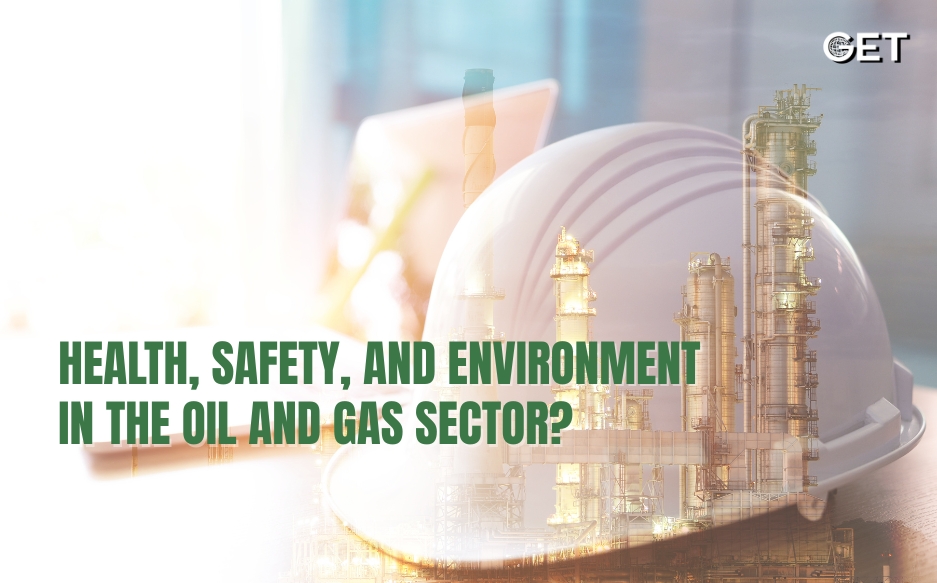
Among all the industries, the oil and gas industry has been labelled as the most hazardous for the work environment. Risks to the workers are in various forms which include occurrences that may take place due to the explosion, exposure to toxic gas, and heavy machinery accidents. The safety of the worker doesn’t only reduce injury but it is also an operational performance enhancer. Workers should follow strict guidelines while adopting the best practices to reduce the risks involved.
The article discusses the safety tips everyone in the oil and gas industry should consider to stay safe at work.
Use the proper personal protective equipment (PPE): PPE is the first line of defense against workplace hazards. Workers are to wear:
Employers should regularly inspect the PPE and the damaged ones replaced. Workers should be trained on the correct use of PPE and understand the importance of wearing it at all times.
To prevent accidents, situational awareness is essential. Workers should:
Identifying hazards and safety training enables the employee to identify and respond to hazards before an accident. Consistent hazard recognition and safety training inform employees when a hazard has been identified and how to respond before an injury occurs. Supervisors must coach their workforce to specifically identify and address site hazards yet remain vigilant.
It is heavily involved in dealing with flammable and toxic materials. Safety measures cover as follows:
Companies should conduct routine safety drills and onboard training for workers handling hazardous materials. A well-prepared team can stave off life-threatening scenarios that develop into full-blown incidents.
Falls remain among the most frequent causes of injuries in the oil and gas industry. Workers operating at heights should:
Strictly, fall safety measures for protection should be applied by all employers to avoid accidents. Comprehensive training and good quality fall protection equipment can considerably reduce the number of injuries sustained.
Effective communication is the primary safety measure in dangerous environments. Workers should:
A culture of safety in the workplace will prevent accidents while ensuring that every employee knows what to do in case of an emergency. Companies should create an environment where workers feel empowered to report safety concerns and actively participate in maintaining a safe workspace.
Collectively, safety and welfare must come first always for workers, and particularly those working in the oil and gas industries. High-quality PPEs, being alert, and taking care while handling hazardous materials, proper fall protections, and good communication with workmates, can all serve very well in minimizing accidents and consequent injuries to workers. Government and corporations should also create an environment where the employees can be encouraged to accept responsibility for safety measures and not blame each other in cases of naive violations of safety and corporate guidelines. Proactive approaches to safety results in saving lives and increasing productivity in the long term. On top of that, further improvements in safety protocols and technology can economize.
Read Also- Driving Sustainability: Lowering Carbon Emissions in Oil and Gas

By Get global | February 24, 2026
Choosing an oilfield service provider rarely feels like a risky decision at the start. On paper, most providers look capable. Certifications are in place. Equipment lists are impressive. Commercial terms appear competitive. The problems usually show up later. A few weeks into operations. After the first unplanned shutdown. When coordination […]

By Get global | February 19, 2026
In today’s constantly evolving energy landscape, selecting the right Upstream Oilfield Services Provider is not only essential but also a strategic decision that directly influences the performance, safety and well being of the workforce. The upstream oil and gas sector operates in one of the most hazardous and risk – […]

By Get global | February 12, 2026
In today’s rapidly evolving energy landscape, the upstream segment is not only crucial in the oil and gas industry but also the basis of finding and exploring hydrocarbons. As projects move into deeper and much complex territories, upstream companies are involved in all the phases of the oil and gas […]

By Get global | February 6, 2026

By Get global | January 27, 2026
The oil and gas industry operates under unpredictable conditions which make it difficult for projects to succeed. When something goes wrong, it goes wrong fast. The situation develops into dangerous conditions which result in multiple fires, injuries, shutdowns and environmental damage that lasts for many years. The oil and gas […]